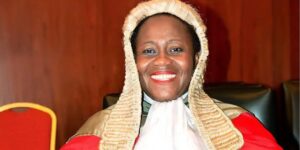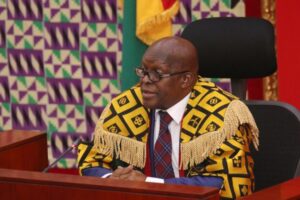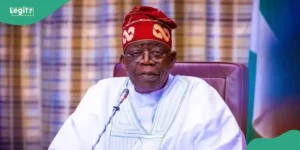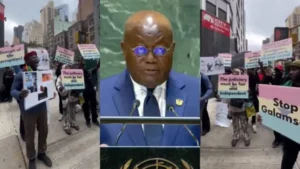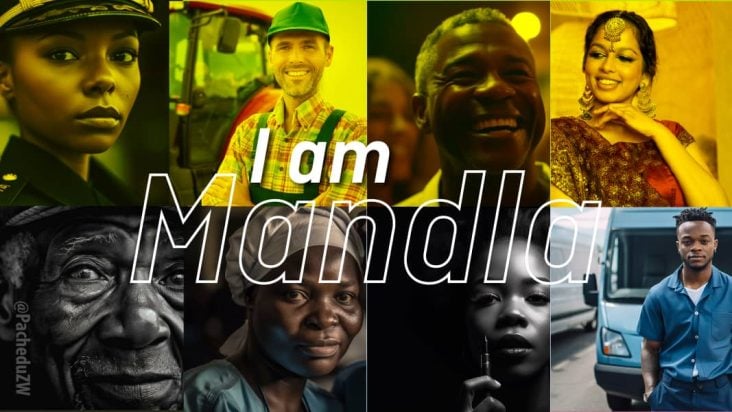
Zimbabwe’s past elections have been marred by allegations of vote rigging by the ruling ZANU- PF party, but a new app called Mandla developed by data analysts Team Pachedu promises to counter any fake results by the Zimbabwe Electoral Commission (ZEC).
The newly-developed app by data scientist and engineer Freeman Chari allows opposition Citizens Coalition for Change (CCC) supporters to check their correct polling stations as well as bona fide CCC candidates.
The app has been developed for the CCC to counter the double candidates mess in some constituencies, which was created by a shadowy military organisation —Forever Associates Zimbabwe (FAZ).
CCC supporters submit their names and identity card numbers through a WhatsApp number.
Filling the gaps
There were gaps in the management of election data and election results during the last general elections, hence the need for a scientific formula to expose cooked up figures, Team Pachedu coordinator Tafadzwa Sambiri tells The Africa Report.
“In 2018, there were reported figures for Mashonaland Central constituency, which did not match the final outcome. The Zimbabwe Electoral Commission [ZEC] has not been able to provide up-to-date electronic data as done by the Electoral Commission of South Africa,†Sambiri says.
“If we also go back to the 2008 election, there was no clear winner – or there was a winner but he did not have enough information or returns. There has always been a missing link and hence we are stepping in. We are doing what the Motlanthe Commission recommended.â€
In its report, the commission called for information communication facilities to be developed for speedy transmission of election results to the command centre. It also proposed that the Electoral Act be amended to shorten the time for announcement of results.
Legal think-tank Veritas says no meaningful amendments have been made to the Electoral Act since the 2018 election, and the five-day limit for declaring the results of a presidential election laid down in section 110 (3) (h) still stands.
“Hence, even if the ZEC has developed systems for transmitting election results electronically, there has been little opportunity to test them,†says Veritas.
Past election rigging
In 2018, Nelson Chamisa, then-leader of the MDC Alliance, challenged the presidential results on allegations that the results had been rigged in favour of the incumbent, President Emmerson Mnangagwa.
Observer mission reports, for example, including the European Union, said the playing field was uneven and cited voter intimidation in Zimbabwe’s polls.
Even so, Chamisa’s opposition party failed to prove how the elections were rigged using data. The matter was dismissed by the Constitutional Court and Mnangagwa was declared the winner.
In 2008, the late former President Robert Mugabe used nefarious tactics like violence and intimidation to rig elections in his favour. Opposition MDC leader Morgan Tsvangirai pulled out of the run-off election and Mugabe competed in a one-man race and won.
Real time reporting
Sambiri says to counter such electoral malpractices, there is a need to track intimidation and violence in real time, which allows faster response.
“It will help ensure that data from each polling station is the same as what is reported by the commission thereby reducing manipulation. If each party has all the data, including V11s [forms used to tabulate election data], then we might just have the winner and loser shaking hands.â€
The Mandla app seeks to enable real time reporting and monitoring of results using polling agents at each polling station.
Sambiri says for security reasons, Team Pachedu has only released the finer details of their app three days before elections.
“Protecting the vote begins with citizens. They cannot assume it is somebody else’s job, and that the political party they support doesn’t need their time and effort. Voters need to approach their party. They should not wait to be asked – and see how they can help.
“We plan on using Zimbabwe as a proof of concept, and then make our software a free and open source, so that no one has to develop such a tool from scratch again.â€
Smart anti-rigging method
The use of scientific methods to verify electoral data will work as the world is moving towards the era of artificial intelligence and scientific data, says Wellington Gadzikwa, a political scientist based at The Africa University.
“This is a smart method compared to traditional methods used in past elections where opposition parties looked for V11 forms to prove their arguments but they could not find them. To some extent, this app will work. This is a new era and we cannot ignore these scientific methods in the digital era,†Gadzikwa says.
More pressure needed
Ignatious Sadziwa, the executive director of Zimbabwe Elections Advocacy Trust, says political parties need to complement Team Pachedu and Chari’s work by placing other measures to mitigate vote rigging.
“We applaud Team Pachedu and Freeman Chari for their genius. However, these heroic initiatives must be complemented by other players like political parties and civil society through putting measures to mitigate vote rigging, and these include ensuring a clean analysable voters roll, and deploying polling agents in all polling stations,†Sadziwa says.
During the 2018 elections, the opposition failed to deploy polling agents at remote parts of the country, which resulted in inflated figures in favour of the ruling ZANU-PF party at those polling stations.
There were reports that the opposition MDC Alliance, then led by Chamisa, had deployed polling agents, but failed to pay them, which resulted in them abandoning the work.
